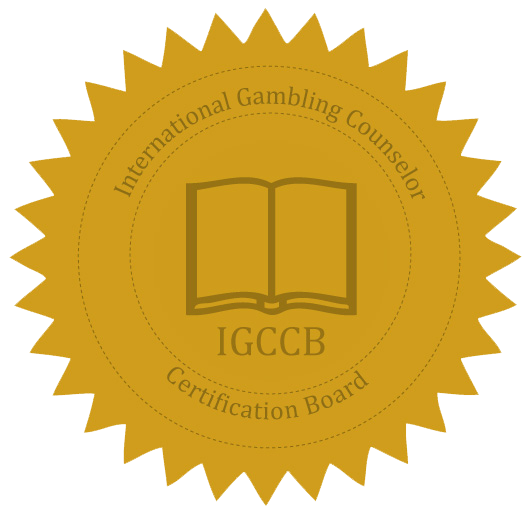International Gaming Disorder Certificate (IGDC)
This certificate aims to increase the number of counselors able address gaming disorders in their current outreach, prevention, and clinical settings. Best-practices and evidenced based approaches are emerging for the treatment of gaming and digital misuse, as well as the intersection with problem gambling and gambling disorders. Other high risk groups for co-occurring issues include other mental health and substance use disorders.
The following is an outline of the requirements for certification as an International Gaming Disorder Certificate (IGDC):
- Bachelor’s degree or equivalent in the behavioral health field such as license or certification in a recognized behavioral health field (i.e., psychology, addictions, clinical social work).
- An International/state/jurisdiction recognized certification or licensure in case management, substance use disorder counseling, or mental health counseling or equivalent in work experience.
- 15 hours of training on problematic and disordered gaming prevention, assessment and co-occurring issues for individuals and families by an approved trainer.
- 50 direct contact hours addressing the issues, prevention and early intervention, co-occurring and when to refer for individuals and families with a gaming disorder
- Minimum of 4 consultation hours with a Faculty Expert and Board Approved Clinical Consultant (BACC)*
* BACC consultation requires a contractual agreement that may also have fees associated. - Consents and evaluations from two co-workers, completed in our Certemy certification software.
- Consent and evaluation from on-site clinical supervisor, completed in our Certemy certification software.
- Completed application, ethical statement, and directory authorization forms in our Certemy certification software.
- Payment of $185 via credit card
Education & Training:
A minimum of 15 training hours of IGCCB-approved gaming training or education must be completed with appropriate supporting documentation as defined by the IGCCB. The International Gambling Counselor Certification Board requires a Bachelor’s Degree or equivalent (as assessed by the IGCCB) in behavioral health field (e.g., license or certificate in psychology, sociology, chemical dependency, counseling, social work, etc.) to meet the behavioral education requirement for certification. A International/state or other jurisdictional licensure or certification in case management, substance use disorder counseling, mental health counseling or equivalent (as approved by IGCCB) in work experience is required.
Direct Contact Hours:
Minimum of 50 direct contact hours addressing the issues, prevention and early intervention, co-occurring and when to refer for individuals and families with a gaming disorder (i.e., training certificates), in a Board approved setting with an IGCCB Approved Clinical Consultant (BACC) and Gaming Faculty Expert.
IGDC Criteria for “Case Consultation”:
Minimum guidelines for approved consultation should include at least 4 hours of clinical consultation. IGCCB clinical consultation maybe done in person, by phone, by email, or as arranged between supervisor and applicant. These should include a minimum caseload as agreed to with the BACC. Clinical Consultant guidelines will include reporting forms, case presentation guidelines, and suggested minimum caseloads.
DEFINITIONS RELATED TO IGDC
Direct and indirect contact hours provided to individuals with a gaming disorder, and their families/significant others are defined as:
- Face to face clock hours with gaming clients.
- Face to face clock hours with individuals with a gaming and/or their parents/families.
- All hours of documentation or consultation for gaming clients or family member to:
- Client chart
- E.A.P./employer
- Counselor supervisor
- Referral agents/other mental health workers court/parole/probation officers
- Any lengthy telephone interventions (30 min. or more, documented).
- Assessments of clients for a gaming problem.
- Preparation of discharge summaries, evaluations and/or aftercare plans for other agencies or care providers.
- Review of gaming cases to medical or clinical director.
- Case management services to managed care providers or utilization review for gaming cases.
- Psycho-educational sessions for gamers and their family members.
- Treatment planning sessions with the treatment team.
